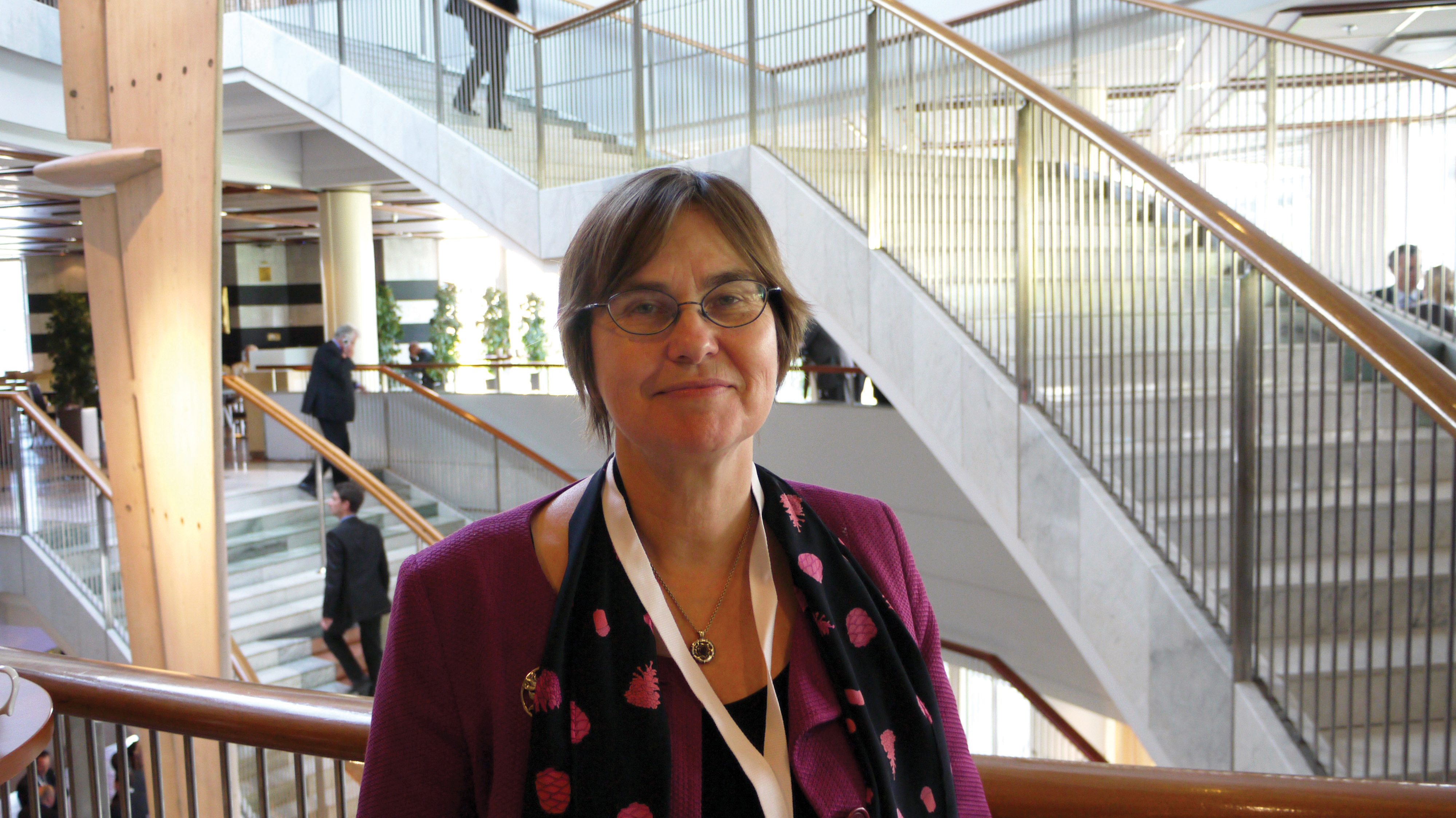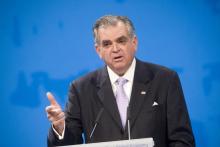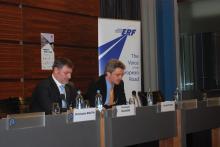
A round-up of some of the major transport-related meetings that have been held in Europe. Compiled by Patrick Smith
Europe has hosted a number of annual events over the last few weeks, where important matters of transport were discussed, reports produced, and decisions taken.ASECAP's 38th Annual Study and Information Days attracted 300 transport leaders, experts and high-level representatives of European Institutions.
According to the organisers, the success of the congress proved once again that PPP (public-private partnerships) schemes and road concessions "offer the best model to ensure smart, cleaner and safer roads through the
Jointly organised by ASECAP, which gathers 20 national members managing more than 40,000km of road networks, and Norvegfinans, the event delivered a strong message assessing the concessionaires' readiness and willingness to contribute to the shaping of sustainable policies for efficient EU mobility solutions, an approach welcomed and supported by the EU policy-makers who attended this event.
Among several issues at stake, all relevant stakeholders together with Director Grillo-Pasquarelli (
ASECAP Secretary General, K. Dionelis, highlighted that it is important "not only to talk to each other but mainly to listen to each other: a dialogue needs one to talk and another to listen." On ITS, ASECAP reiterated its strong support to the EU political commitment in terms of ITS deployment policies and to the forthcoming Directive on Intelligent Transport Systems to be adopted shortly.
However, ASECAP reminded policy-makers that all choices must be driven by sound business models and by a concrete assessment of users needs.
"Toll concessionaires proved that perfect business cases exist in the tolling sector and therefore reminded that they are ready to offer their field expertise and knowledge for a successful deployment of these systems," said the organisers.
A. E. Jensen, rapporteur on the ITS Directive for the Transport Committee of the European Parliament, praised the role played by the concessions' industry that has at its disposal large resources to invest in this field.
The congress was also the occasion for road operators to underline once again that safety and environment protection are already concrete ingredients in their daily infrastructure management.
"ASECAP members recalled that they do operate the most and qualitatively best part of the TENs [Trans-European Transport Networks] roads with the highest safety and green performances thanks to the resources and human skills devoted through research and implementation. This has been demonstrated through many presentations on specific projects implemented by ASECAP members and reinforced by Mrs Tsingou's (
EU construction shows 7.5% decline
FIEC, the European Construction Industry Federation, presented the new edition of its annual statistical report at its Annual Congress, held in Limassol, Cyprus.
"The broadly negative trend affecting EU economic growth in 2009 has had a significant impact on overall EU construction activity, which suffered a decline of 7.5% in 2009," said FIEC President Dirk Cordeel. "A decline in construction activity is now reported in almost all EU member states, and regarding the various construction sub-sectors, trends and mechanisms have largely been the same in most EU countries.
"It is clear that the EU and national stimulus packages have softened the downturn to some degree. However, most of them have failed in contributing to economic recovery in the sense that in some cases they have only provided short-term solutions: in other cases, their implementation has been delayed and some programmes have even been cancelled." According to FIEC's statistics the reduction in construction activity has largely been concentrated within the new housebuilding (-15.6%) and private non-residential (-10.8%) segments. The former has suffered from poor consumer confidence in the markets, while the latter has experienced the significant drawing back of business demand and investment.
By contrast, civil engineering suffered a relatively small decrease ("only" -2.8%) and the public non-residential segment even grew by 1.1% in 2009. This reflects decisions made at government level to maintain, bring forward or even increase expenditure on public buildings and infrastructure, as part of the national stimulus packages.
In 2009, EU employment in construction fell sharply (-8.3%).
A further decrease is expected in 2010.
During the assembly, Italian contractor Mrs Luisa Todini was elected President of FIEC for the 2010-2012 period succeeding Belgian contractor Dirk Cordeel. She has for some time represented the interests of the construction industry in key positions.The second day of the congress was dedicated to technical presentations divided in four sessions (Toll Roads Safety Actions in a Regional and European Perspective; ITS - Political Commitment and Effective Deployment; Latest Tolling, its Technologies and Added Value Services, and Communication Strategies and Marketing Best Practices).
ITF: vision on future of global transport
Growing population, increasing urbanisation higher incomes will boost demand for transport and put great pressure on transport systems around the globe.This is a key finding of Transport Outlook 2010, an annual study published by the ITF (an inter-governmental organisation within the OECD/Organisation for Economic Development and Cooperation).
According to the ITF study, capacity will be hard pressed to expand as rapidly as demand. Transport systems will be required to operate much more efficiently in the future.
Transport Outlook 2010 was presented by ITF Secretary General Jack Short at the ITF's 2010 Forum event (entitled Transport and Innovation: Unleashing the Potential) in Leipzig, Germany. It brings together more than 800 ministers and senior decision-makers from 52 ITF member countries each year to debate strategic issues in global mobility, transport and logistics.
Research by the ITF/OECD's Joint Transport Research Centre, claims the current crisis has had a relatively greater impact on trade and transport than previous economic downturns. This is reflected in very large volume and price effects, especially in freight transport: trade fell by about 20%, according to the CPB World Trade Volume Index and dry bulk shipping rates fell dramatically by a factor of eight from 2007 to 2008.
Car ownership and car use appear to be levelling off in advanced economies, which is not necessarily saturation, but reflects high and uncertain energy prices, lower and uncertain incomes, and a switch to faster modes like air travel or high-speed rail.
Air passenger transport is the fastest growing transport mode. The ITF researchers expect that volumes will triple by 2050 as in 2010 (a figure substantially more conservative than that given by the airline industry). The higher levels will only be reached if China and other Asian markets liberalise deeply with Open Skies agreements.
Transport growth will have considerable impact on future CO2 emissions. Stabilising greenhouse emissions from light-duty vehicles alone will require fuel economy to roughly double. Car emissions would have to attain 90g/km in 2050 as a global average.
Demand management in transport can help to reduce emissions. It is also badly needed to address other transport related problems, such as congestion, air pollution, and noise. But the ITF experts do not see it as a primary tool for curbing emission growth. Firstly, changes on the scale needed to curb CO2 emissions are likely unfeasible or economically undesirable. Secondly, technological innovation provides better ways to reach climate change targets.
In the view of ITF researchers, optimising fuel economy needs to be the core strategy for transport-related CO2 emissions reduction in the next two decades. Nonetheless, the energy base of transport needs to be transformed if renewed growth of emissions after 2050 is to be avoided.
"Policy support for this lengthy process must start now. Innovation is the key," said Jack Short.
"We need it in all areas: to get the most out of the tried and tested technologies, and to open new paths that can make transport cleaner, safer more accessible and more efficient."






